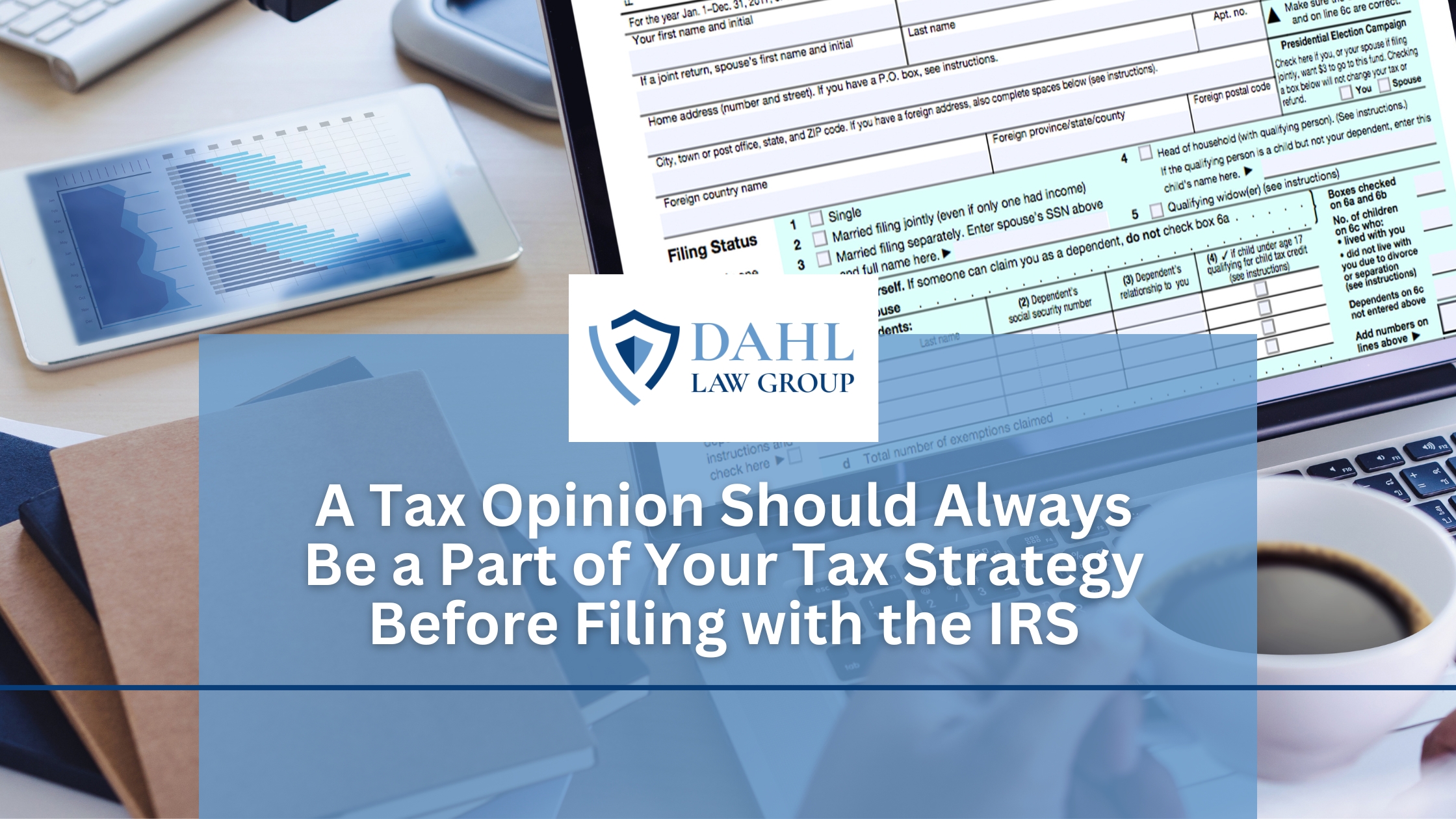
What good is an opinion when we’re talking about taxes that revolve around hard numbers and facts? Devising a proper tax strategy is a critical element of any California business, but the layers of business tax filings are one of the biggest headaches for business owners. You need to get your tax filings right. So, how does a tax opinion help?
What is a Tax Opinion?
A tax opinion is an analysis of a financial circumstance or transaction that justifies the position taken by the individual or business filing. This opinion is generated at the time of a transaction or prior to filing a return as a means of fortifying the stance taken in a filing. While these opinions do not bind the IRS to make a ruling or judgment on the given filing, it is primarily based on facts and the law at hand to increase the odds of a favorable assessment by IRS officials should questions be raised.
The law states these opinions must come from a qualified tax professional who is well-versed in all areas of applicable tax law, so it’s crucial to seek out the proper professional before you file. It’s worth noting that a tax opinion with a low level of confidence has a lessened likelihood of penalty avoidance.
Understanding the Levels of Confidence in Tax Opinions
Not all tax opinions are created equally. There are varying levels of confidence in a tax opinion that must be predetermined at the time the opinion is written. The levels are:
- Will – This means your tax position is borderline guaranteed by the professional crafting the opinion.
- Should – This suggests that the probability of having your tax position sustained is high but not entirely assured.
- More Likely Than Not – The professional who prepared your tax opinion feels better than 50/50 about your position.
- Substantial Authority – Your tax position is backed by multiple legal positions and precedents, but there are also cases that go against your position. This is less than 50% confidence, but it does afford penalty protection.
- Reasonable Basis – There is more than just a mere argument that your tax position is valid, but the confidence level is significantly lower than the above.
- Limited Scope – These tax opinions are created without addressing all the tax questions at hand. This is for instances where there are gray areas in IRS regulations that require further attention by the IRS. Acknowledging this expands your defense should you be found to have violated tax law.
- Not Frivolous – This is simply stating that your tax position is not merely a shot in the dark but an informed opinion, even if the opinion is unorthodox or knowingly goes against certain standards and regulations.
How Does a Tax Opinion Fortify Your Position?
Tax opinions play several key roles in your position as a taxpayer. First and foremost, they provide penalty protection. Obtaining an opinion from a tax professional provides guidance on tax filings while also justifying those filings. While you aren’t always submitting these opinions to the IRS, it does provide an immediate, proactive response to any potential audit or penalties from the IRS by associating your tax position with a qualified tax opinion.
Additionally, showing that you are taking proactive steps rather than waiting for an unfavorable audit puts you in better standing with the IRS. When you obtain a tax opinion at the time of a transaction, it serves to justify your position on that specific instance. When you obtain a tax opinion at the time of your tax return, you are retroactively justifying your position and at least getting ahead of a potential audit. When you wait until you’ve already been audited, it’s too late.
File with Confidence with Tax Opinions from Dahl Law Group
Should a dispute arise with the IRS, the taxpayer is able to refer to the opinion to better justify their position and show a reasonable effort to abide by tax law. A tax opinion should only be provided to the IRS if potential penalties or disputes arise with the IRS. Prior to this, the opinion is held as a private attorney-client communication.
If you have an upcoming financial transaction that requires a tax opinion or are about to file a tax return that would be better supported with a tax opinion, contact Dahl Law Group today.



